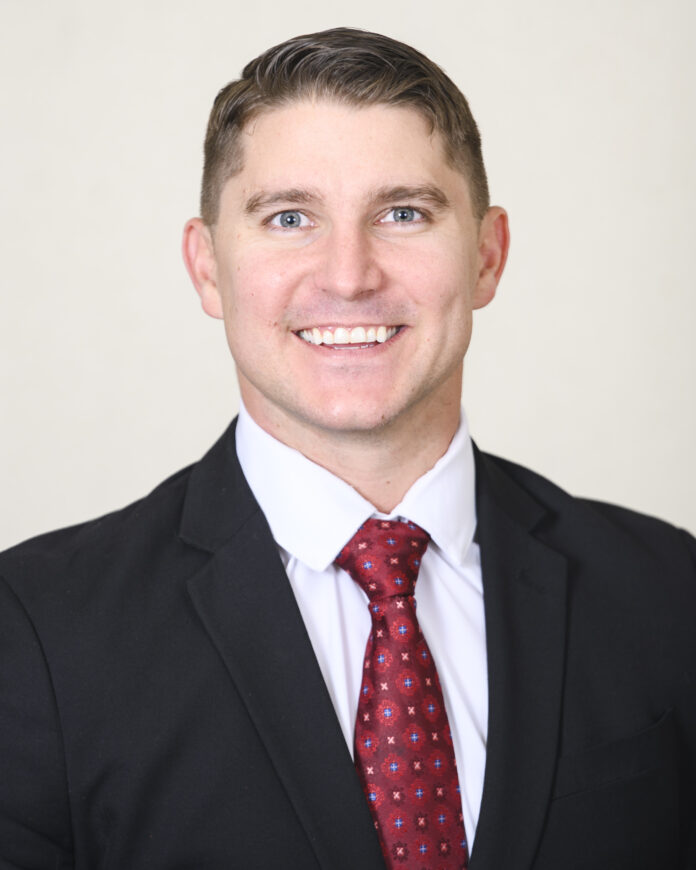After a tumultuous first term that included battles over a new sales tax, a coronavirus and a new juvenile detention center, Ector County Judge Debi Hays will be saying goodbye.
Hays had picked up 42.71% or 4,136 votes during Tuesday night’s primary election compared to opponent Dustin Fawcett, who brought home 57.29% or 5,549 votes.
With no Democrats in the running, Fawcett will take office in January.
Fawcett said his campaign was based on having a plan and a vision and he thinks that resonated with voters, as did his promises of being a good communicator and team player.
In the coming months, Fawcett said he intends to continue meeting with county departments to find out what their needs and wants are. He’ll also continue to attend commissioners meetings.
“I’m excited about the future of Ector County and I think this is an excellent step in the right direction,” Fawcett said.
Hays congratulated Fawcett.
“I wish him the best,” Hays said. “It was a good race, the voters turned out and Ector County can look forward to a new judge Jan. 1.”
She said she’s not sure what lies ahead for her, but the Lord does.
“I wouldn’t do anything differently,” Hays said. “I’m proud of what I did during my term in office and I ran a clean campaign. I have no regrets.”
Hays spent much of her campaign defending her record against allegations launched by Fawcett.
Accused of disappearing during the early days of the COVID-19 pandemic, Hays said the city and the county signed an agreement that was filed with the Texas Department of Emergency Management that city personnel take on the role of spokesman during the pandemic.
Hays also fought back against allegations that the county issued $26 million in certificates of obligation to build a new juvenile detention center in secret. She pointed out notices about the center were posted appropriately and several public meetings were held.
The county judge also acknowledged that she has received two raises, but said everyone in the county received raises at the same time, she said. Back in 2018, a pay comparison study was done by a committee headed up by then County Attorney Dusty Gallivan. The committee recommended the IT department head, sheriff, county judge and the auditor receive raises, Hays said. The commissioners voted against the recommendation, but gave a 10% raise to county employees across the board.
Another across-the-board raise was given again in 2020, Hays said. In between those years, the sheriff’s office, the county attorney’s office and the district attorney’s office received substantial raises, she said.
Hays reminded voters that during her tenure, the county was able to create the Ector County Assistance District, a sales tax that will add approximately millions of dollars to the county’s budget and has been earmarked for road improvements, cleaning up West Odessa and new deputies. An attempt to pass the ECAD had failed previously.
Fawcett also faulted Hays for the county commissioners’ decision to hire an outside firm to assist them in determining who should get the county’s $32 million in American Rescue Plan Act funding. He suggested the firm will be making decisions the commissioners and Hays were elected to make; Hays said the firm will only make sure they’re legally eligible for the funds.
Fawcett told voters the county needs to focus on infrastructure, institutions and innovation. He said the county needs to make short, medium and long-term plans for its roads, and take an inventory of the county’s buildings in terms of their lifespans, maintenance and functionality.
Fawcett also said the county needs to work with health care institutions, the area’s colleges, the Odessa Chamber of Commerce, nonprofits and neighboring governments. For example, he said the county could work with the universities to develop workforce development programs and internships.
He also said the county should look out for ways to be innovative.
Fawcett studied political science at Millsaps College before dropping out his senior year and going to work at Delta Fuel where he managed a fleet of over a dozen drivers for a little over a year. He worked on Rep. Brooks Landgraf’s campaign and then spent 15 months working as his legislative aid in the Texas House of Representatives. After that he spent a little over three years as vice president of the Midland-Odessa Transportation Alliance before leaving to become the regional director of the Better Business Bureau. The BBB doesn’t allow employees to run for public office, so he took a job as the manager of MCH’s ProCare Clinic in May 2021.




